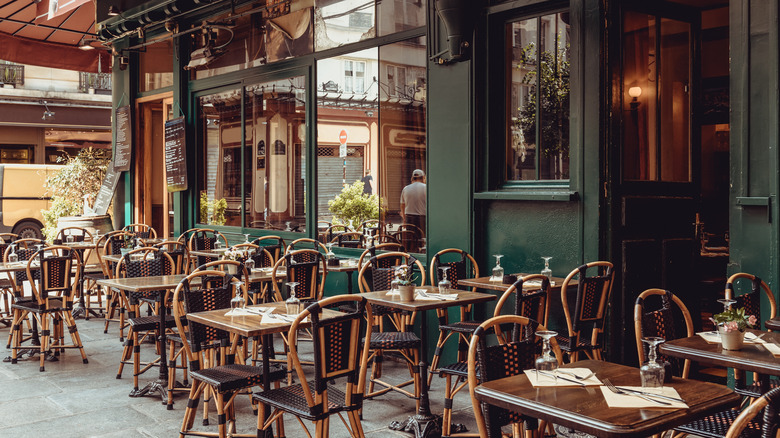Why Saying 'Bon Appétit' Is Considered Impolite By Some
In French culture, sitting down and sharing a meal is considered customary. That might seem like a given in most cultures, but the French have found a way to make it their own. From beautifully set tables to actively engaging all five senses, French people have developed their own specific structure to eating as a group that's been termed the "gastronomic meal of the French" and was inscribed by UNESCO on their Representative List of the Intangible Cultural Heritage of Humanity in 2010.
From the aperitif (the pre-meal drinks) to the digestif (the after-meal drinks, via Spruce Eats), and each course in-between, the gastronomic meal of the French is characterized by the use of fresh, local products within carefully selected dishes that represent the diverse terroir of France. Paired with wines of the same stature, the French place the same level of importance on their food and drink as they do table manners. But, instead of having a rulebook to follow, they're more like habits that, for outsiders, can be especially difficult to catch on to.
But no other is more questionable than whether or not to use the classic saying, "bon appétit."
French table manners
The French language is full of beautifully eloquated accents and conjugations that, for foreigners, can make anything sound romantic. But that's not the case for those who were born and raised with it as their first language. The "bon appétit" saying is a perfect example as it's used as a commencement to the beginning of a meal by non-French speakers around the world. But the people of France would like you all to know that the words don't necessarily mean what you've thought they did all this time. In fact, those two words can have the opposite effect and put people off their meals entirely.
Stemmed from the masculine noun, "'l'appétit," or appetite, and preceded by the masculine form for good, "bon," bon appétit translates to "good appetite" (via Commeune Francaise). As Myka Meier, the French etiquette partner for Downtown Abbey and the Plaza Hotel's finishing school teacher, tells PureWow, the saying is associated with having good digestion, which, for some, is certainly not appropriate table convo. According to the New York Times, this idea is linked to the 19th-century belief that any suggestive talk or conversation around bodily functions is inappropriate during meals.
While not all French speakers have banished the saying from their tables, it's best kept to yourself.

